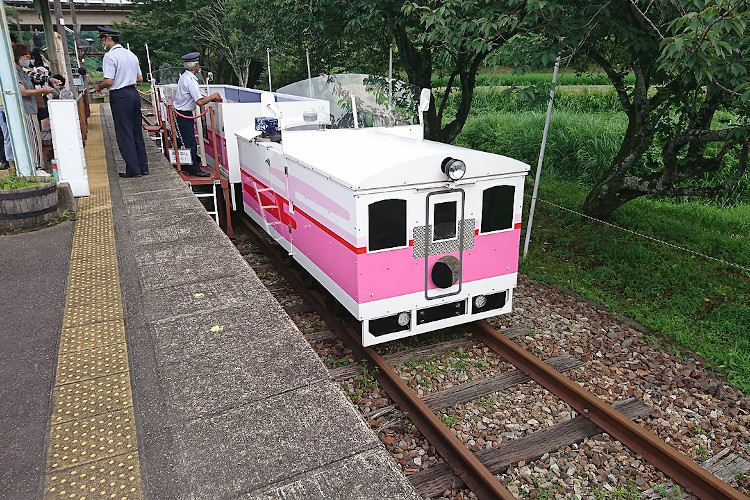
Photo: ブルーノ via Wikimedia Commons (CC BY-SA 4.0)
The Amaterasu Railway is a tiny sightseeing train that takes visitors on a 30-minute ride and showcases some beautiful landmarks in the Miyazaki Prefecture. (A highlight includes Japan’s highest train bridge, which stands 344 feet tall.) The train itself, however, has some quirky elements that make it a lovable sight in its own right, from its open roof and pink-colored cars to the fact that the conductors blow bubbles along the ride. Now, it has added an even more interesting feature. It has ditched regular fuel to run on a particular kind of biodiesel made, among other delicacies, from leftover ramen broth. It leaves a delicious aroma in the air and is less damaging to the mountainous landscapes and rice fields that it travels through.
Biodiesel refers to fuel for diesel engines made from vegetable oil or animal fat and offers an alternative to fossil fuels. In regions such as the U.S. and Europe, biodiesel has been produced with vegetable oil from rapeseed, canola, or soybeans, while the Japanese industry avoids competing with food producers for resources and turns to waste cooking oil or even food leftovers.
For the switch, the Amaterasu Railway partnered with Nishida Logistics, a transportation company from the neighboring Fukuoka Prefecture that has pioneered a handful of biodiesel types for its truck fleet. As for the biodiesel that is used by this train, 90% originates from tempura oil and other cooking oils, while 10% is from tonkotsu ramen broth. Its resources come from local restaurants. To transform this fatty broth into biodiesel, the company separates lard from leftover pork bone soup and then refines it using a special method that avoids hardening. The only downside of this biodiesel is that it can only be stored for a couple of months at the most before oxidation begins to tamper its efficiency.
The first test drives took place last July. The biodiesel fuel was able to power the train, which comprised two wagons and the weight of up to 60 passengers, with no issue—even on an uphill stretch. Although regular replacement of the fuel filter is required, the cost is said to be about the same as conventional fuel. Moreover, the delicious smell left by the burnt biodiesel has visitors asking the train conductors if there is a restaurant nearby.
The Amaterasu Railway is a tiny scenic train that has ditched regular fuel to run on a particular kind of biodiesel made, among other delicacies, from leftover ramen broth.
To transform this fatty broth into biodiesel, the company separates lard from leftover pork bone soup and then refines it using a special method that avoids hardening.
h/t: [Spoon Tamago]
Related Articles:
French Law Now Requires Large Parking Lots To Be Covered in Solar Panels
Glasgow Nightclub Turns Dancers’ Body Heat Into Thermal Energy
Scientists Say Not to Bag Your Raked Leaves This Fall
Student Designs 3D-Printed Robot Fish That Filters Microplastics From Water
